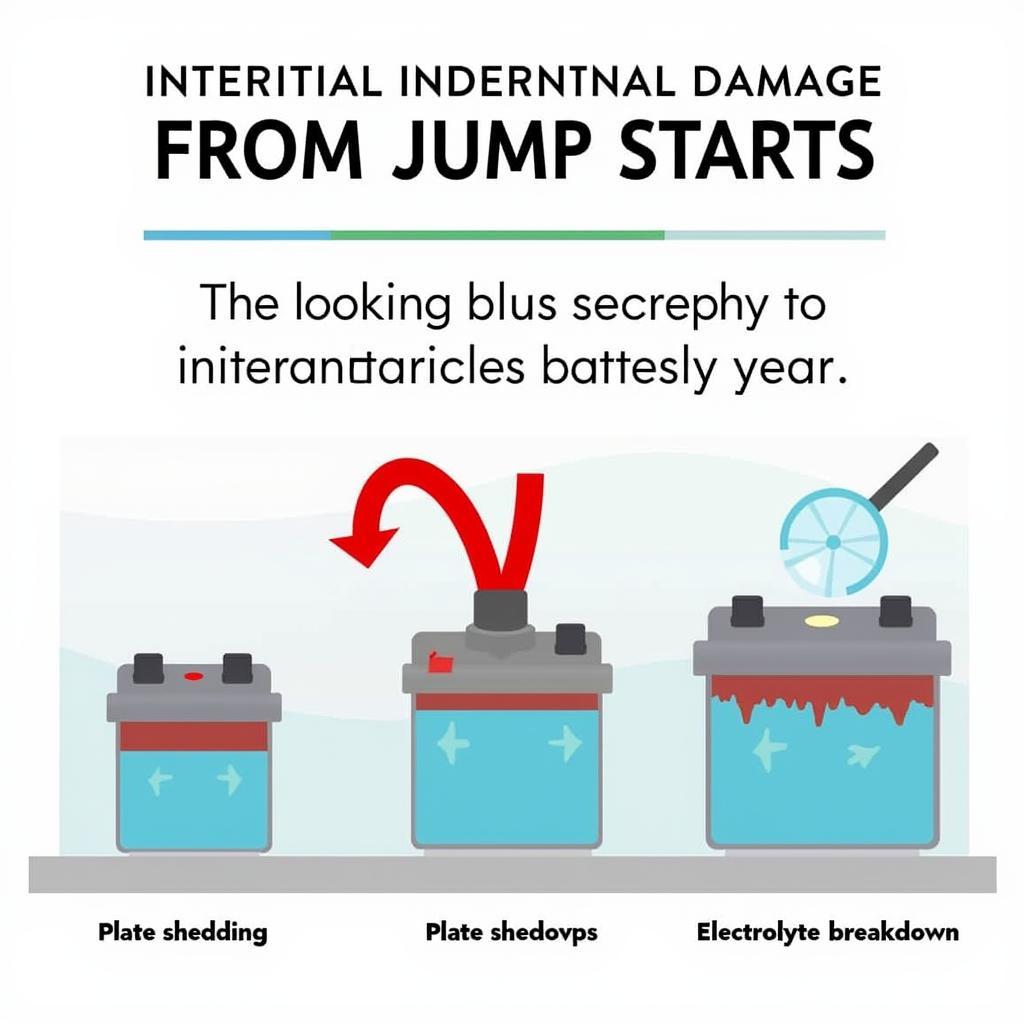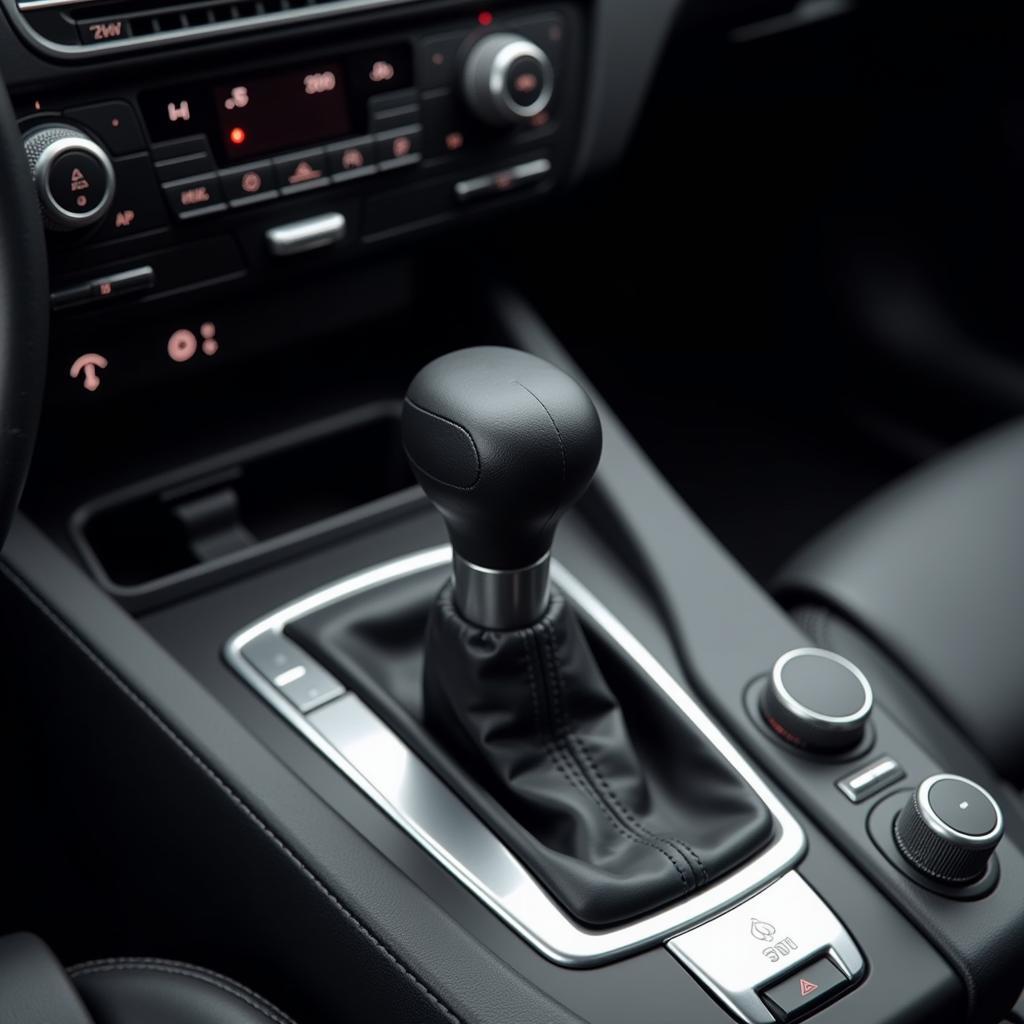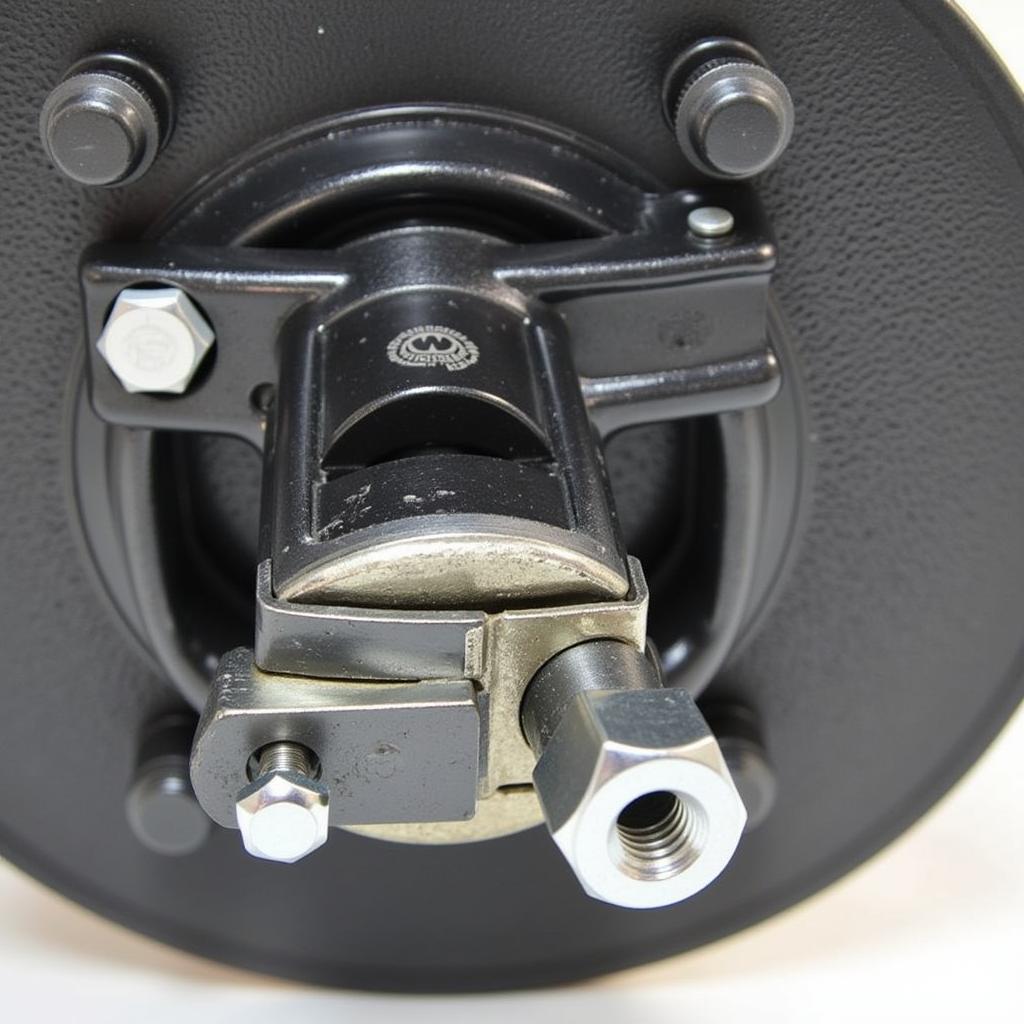Jumping a car can be a lifesaver, but you might be wondering about its impact on your car’s battery. Is it damaging? Is it a temporary fix or a long-term solution? This article dives deep into the effects of jump-starting on your car’s battery, covering everything from the immediate impacts to long-term consequences.
If you find your car refusing to start, jump-starting might seem like the quickest and easiest solution. But while it can get you back on the road, it’s important to understand the potential consequences for your vehicle’s battery. Is jump starting always safe? What are the best practices? We’ll address these questions and more. Jump-starting can sometimes mask underlying problems, so it’s crucial to diagnose the root cause of your car’s starting issues.
How Jump Starting Affects Your Car Battery
Jump-starting itself doesn’t inherently damage a healthy battery. The process involves using a charged battery to provide the necessary power to crank a dead battery and start the engine. However, a few scenarios can lead to problems. For instance, a severely sulfated battery might not accept a charge effectively, even with a jump. Additionally, the sudden surge of electricity during a jump can sometimes exacerbate existing issues within a weakened battery.
Can Jump Starting Damage a Good Battery?
Generally, jump-starting a good battery won’t cause damage. However, incorrect procedures, such as reversed polarity or using incompatible batteries, can lead to serious problems, including battery explosion or damage to the car’s electrical system. Always double-check the connections before starting the process. If you notice any corroded car battery symptoms, it’s essential to address them before attempting a jump start.
The Risks of Frequent Jump Starts
While an occasional jump start is unlikely to cause significant harm, frequent jump starts are a red flag. They indicate an underlying issue, such as a failing alternator, parasitic drain, or a dying battery. Relying on jump starts becomes a band-aid solution, masking the real problem and potentially leading to more severe issues down the line.
Why is my car not starting after a jump?
If your car not starting after jumping battery, there’s likely a more significant issue at play than simply a discharged battery. This could range from a faulty starter to a more complex electrical problem. Diagnosing the root cause is essential for a permanent fix. Sometimes, even with jumper cables, a car might refuse to start. If your car wont start with jumper cables, the issue could lie within the charging system or other electrical components.
Long-Term Effects of Jumping a Car
Repeated jump starts can shorten a battery’s lifespan, especially older batteries. The surge of electricity can stress the internal components, accelerating the degradation process and potentially leading to premature failure. Additionally, continuous reliance on jump starts can mask underlying electrical problems, allowing them to worsen undetected.
“Often, car owners overlook the importance of proper battery maintenance,” explains John Miller, Senior Automotive Electrical Engineer at Miller Automotive Solutions. “Regularly checking the battery’s health and addressing underlying issues can prevent the need for frequent jump starts and prolong its lifespan.”
What if my car lights are on but it won’t start?
If your car lights are on but wont start, the battery might have enough power for the lights but not enough to crank the engine. This can indicate a weakened battery or a problem with the starter motor. Jump starting might provide a temporary solution, but further investigation is necessary to pinpoint the exact cause.
 Car Battery Jump Start Damage
Car Battery Jump Start Damage
Sometimes, a car battery becomes so depleted that it car battery wont jump start. This often signifies the end of the battery’s life and necessitates a replacement. “Remember, jump-starting is a temporary solution, not a long-term fix,” reminds Sarah Chen, Lead Diagnostic Technician at Chen Automotive Diagnostics. “Addressing the underlying cause of the dead battery is crucial to prevent recurring issues.”
Conclusion
While jumping a car is often necessary, it’s important to understand its potential impact on your battery. Occasional jumps are generally safe, but frequent jump-starting signals underlying problems that need addressing. Regular maintenance, proper jump-starting procedures, and addressing the root cause of starting issues are key to maintaining a healthy car battery and avoiding long-term problems. Remember, jumping a car shouldn’t become a habit!


